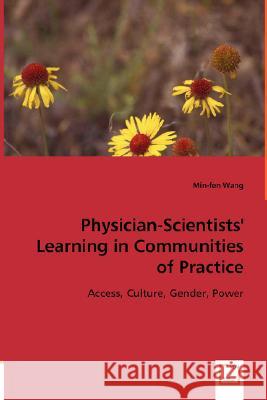Physician-Scientists' Learning in Communities of Practice » książka
Physician-Scientists' Learning in Communities of Practice
ISBN-13: 9783836468909 / Angielski / Miękka / 2008 / 464 str.
The numbers of physician-scientists (PSs) who conduct patient-oriented (i.e., clinical) research (CR) are declining; thus, public health care and research is in serious jeopardy.In order to determine how to attract more physicians to CR careers and direct educational interventions effectively, this book using qualitative research method unraveled the complicated nature of PSs learning in light of the structural dimensions of individual and workplace context, such as access, culture, gender and power and proposed a model to foster PSs learning in communities of practice. The goal is to encourage various forms of peripheral participation in broadly defined CR to construct layers of going from core membership to extreme peripherality in a global PSs community. These layers of engagement serve the dynamics of the CR enterprise development and provide multiple learning opportunities for PSs. Four main issues in the workplace learning relating to 1) learning how to learn in practice, 2) restructuring power and access to learning resources, 3) exercising combination of mentorship and leadership, and 4) understanding cultural and gender differences were discussed. This book should be especially useful to clinical research training program educators, planners and policy-makers, or anyone else who has interest in facilitating the integration of practice and research in various professional development contexts.











